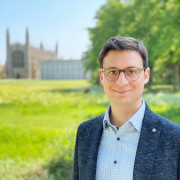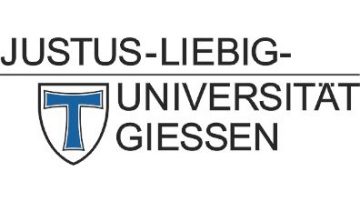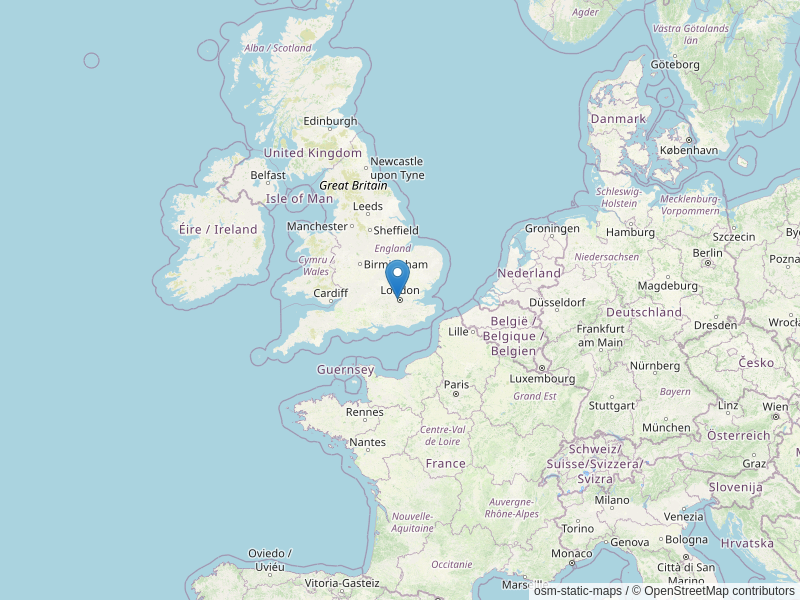In Profile - Alexander Bleistein

© DAAD/Bleistein
I have been working as a DAAD-Lektor at the University of Cambridge since 2016. My post is located at the Centre for Languages and Inter-Communication (CLIC) within the Engineering Department, where we offer language courses for students of engineering and related fields.
I studied German and Social Studies at the University of Bamberg. Back then, in 2012, I came to England for the very first time, doing an internship with the Goethe-Institut London. It was only three months, but long enough to fall in love with the British culture and way of life. The internship also sparked my joy of teaching German as a foreign language and so I acquired further teaching qualifications in this field later.
Having graduated with the First State Exam in 2015, I spent a year in the Netherlands, working as a language assistant with the Goethe-Institut Rotterdam and visiting schools all over the country with the “Mach-mit-Mobil” to promote German language and culture. My post was partly funded by the DAAD, and I enjoyed representing my country abroad very much, so applying for a DAAD-Lektorat seemed like a natural step to me.
I was lucky enough to be sent to Cambridge, where I am part of an active network of other DAAD-LektorInnen, lecturers and teachers of German as well as the DAAD Cambridge Research Hub, which supports and connects researchers of Germany-related themes and subjects.
What does a typical day in your job look like? Is there any link/relation to German/ Germany?
As a DAAD-Lektor, I have a wide range of tasks and all of them are related to German and Germany in one way or another. On most days, I am teaching German language at different levels, often integrating subject-specific language. This includes course design, development of resources and assessment. We also run research projects and lecture series with German-speaking experts, which allows students to apply their language skills to the technical field.
Another key task of a DAAD-Lektor is advising students and researchers on scholarships to go to Germany for an internship, research stay, language course or postgraduate degree. To many of my students, the DAAD RISE programme, offering internships in science and engineering, is of particular interest.
Thanks to funding from the DAAD, I also regularly organise extracurricular activities, such as German movie nights as well as study trips that took my students to Berlin, Munich, and Aachen, where they visited research facilities and companies. Most recently, we have established an online telecollaboration course with the TU Munich to keep student exchange going during the pandemic.
Which is your favourite city/ place in Germany and which in the UK/Ireland and why? Are there any similarities or differences?
Bamberg must be the place that I always love coming back to, after having spent most of my student life there. It is very similar to Cambridge in the sense that it is a rather small town with a large student population, a historic city centre, an old non-campus-university spread across the city and a rich cultural life with concerts, short film festivals, and readings. Sitting in one of the numerous beer gardens (or Keller, as the locals call them) with a cold beer and a hearty meal is the epitome of “German Gemütlichkeit” to me.
Cambridge must be my favourite place in the UK, but I am clearly biased here. I also love the vibrant cities of London and Bristol, the historical town of Bath and all spots I have seen of Scotland so far. There are still many places on my list to visit, with the Lake District on top of it.
What was the most ‘German’ experience you have had in the UK/Ireland so far? How did you react? What did it remind you of?
A student recently approached me using the words “Servus, Alex!”, a rather informal and Southern German way of greeting. I was slightly confused in the first instance, but it quickly put a smile on my face. Seeing students picking up phrases from stays abroad makes any language teacher very happy.
Can you cook a German dish without a recipe? If so, which one and where have you learned it?
Cooking is my number one cure whenever I start feeling a bit homesick. I recently got hold of white asparagus in a small deli shop – it is so hard to find in the UK and usually quite expensive! Prepared in the classic way, as I learnt it from my mother, with sauce hollandaise, new potatoes and cooked ham, it almost felt like being with my family back in Germany during “Spargel Saison”. The same works with “Plätzchen”, German Christmas cookies. But to be completely honest, I do have to rely on family recipes here.
What advice would you give to UK/Irish students and researchers who are thinking of pursuing research abroad in Germany? Or alternatively to German students and researchers who are thinking of pursuing research abroad in the UK/Ireland?
Firstly, go abroad and apply to scholarships offered by the DAAD and partner organisations! Internships are a great way to experience life in another country and will open new career paths. I am speaking from my own experience – most likely, I would not be in England now, if I had not done an internship in London during my undergrad.
Secondly, learn foreign languages and immerse into the culture! Even if not studying a modern language degree, there are always ways to attend courses at university language centres or elsewhere. It is not only a great thing to add to your CV, but also helps you understand other cultures and communicate with other people.
As the late John Le Carré mentioned during an award ceremony at the German Embassy London for German teachers that I attended in 2017: “To have another language is to possess a second soul.” He added: “To teach another language is to implant a second soul.” This pretty much sums up my joy of teaching German, so I encourage graduates from German universities to have a look at the DAAD-Lektorenprogramm and Deutschlehren.International or, if conducting Germany-related research, to connect with the DAAD Cambridge Research Hub.





